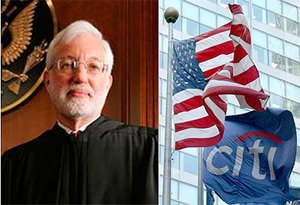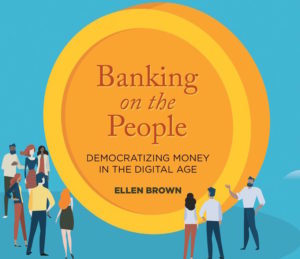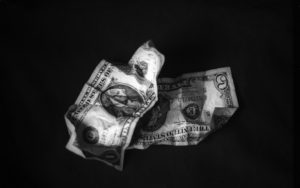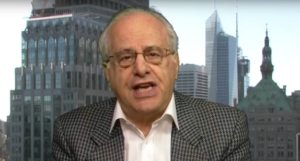Truthdigger of the Week: Judge Jed Rakoff
In The New York Review of Books last week, Judge Jed Rakoff stepped off the judicial bench and blamed the Justice Department for enabling "too big to jail" banks.
Every week the Truthdig editorial staff selects a Truthdigger of the Week, a group or person worthy of recognition for speaking truth to power, breaking the story or blowing the whistle. It is not a lifetime achievement award. Rather, we’re looking for newsmakers whose actions in a given week are worth celebrating. Nominate our next Truthdigger here.
Two years ago Jed Rakoff, senior judge for the Southern District of New York, embarrassed both the Securities and Exchange Commission and Citigroup by rejecting a deal to relieve the bank of guilt for cheating its customers out of more than $700 million by selling them bad mortgages. This month, in the pages of the Jan. 9 issue of The New York Review of Books, he stepped forward from the bench once again to criticize the mindset that both led to that deal and produced the financial crisis.
“Who was to blame” for the recession that forced “millions of Americans” into “lives of quiet desperation: without jobs, without resources, without hope”? he asked. “Was it simply a result of negligence. … Or was it the result, at least in part, of fraudulent practices?”
Without quite deciding what occurred, Rakoff asks why “not a single high-level executive has been successfully prosecuted in connection with the recent financial crisis.” One possibility is that no fraud was committed. Rakoff tells us he hasn’t performed the examinations necessary to rule on that matter. But others have. In their final report on the subject, investigators with the Financial Crisis Inquiry Commission used “variants of the word ‘fraud’ no fewer than 157 times in describing what led to the crisis, concluding that there was a ‘systemic breakdown,’ not just of accountability, but also in ethical behavior,” he writes.
“[T]he signs of fraud were everywhere to be seen, with the number of reports of suspected mortgage fraud rising twenty-fold between 1996 and 2005 and then doubling again in the next four years,” Rakoff continues in The New York Review of Books. “As early as 2004, FBI Assistant Director Chris Swecker was publicly warning of the ‘pervasive problem’ of mortgage fraud, driven by the voracious demand for mortgage-backed securities. Similar warnings, many from within the financial community, were disregarded, not because they were viewed as inaccurate, but because, as one high-level banker put it, ‘A decision was made that we’re going to have to hold our nose and start buying the stated product if we want to stay in business.’ “
Rakoff goes on to say that in the aftermath of the crisis, many government officials opted for the view that the collapse was in part due to intentional fraud relating to the sale of “mortgages of dubious creditworthiness. … How could this transformation of a sow’s ear into a silk purse be accomplished unless someone dissembled along the way?”
Rakoff lists the Justice Department’s stated reasons for failing to pursue prosecutions for fraud. The claims are: 1) proving fraudulent intent is difficult, 2) because the buyers themselves were sophisticated investors, it cannot be said that their ignorance was taken advantage of, and 3) subjecting major banks to criminal inquiry would damage the economy.
The first objection implies that bank executives weren’t aware of possible fraud in their companies. That’s impossible, Rakoff says, because in the years leading up to the crisis, investigations performed by the banks themselves found evidence that fraud was occurring. The second claim is undone by two facts. First, convoluted trades occur in tremendous volume at lightning speeds, so even financial wizards might miss something. Second, “in a criminal fraud case the government is never required to prove—ever—that one party to a transaction relied on the word of another. The reason, of course, is that that would give a crooked seller a license to lie whenever he was dealing with a sophisticated buyer.”
The third claim, that prosecutions may harm the economy, is dealt with simply by referring to equality under the law. Even the spearing of a CEO wouldn’t destroy a bank.
Rakoff continues: “Without multiplying examples further, my point is that the Department of Justice has never taken the position that all the top executives involved in the events leading up to the financial crisis were innocent; rather it has offered one or another excuse for not criminally prosecuting them—excuses that, on inspection, appear unconvincing. So, you might ask, what’s really going on here?”
While reaffirming that he has no “inside information about the real reasons why no such prosecutions have been brought,” Rakoff offers some speculations. Again, we get three bullet points. The first, detailed at some length, is the possibility that regulatory bodies were already overwhelmed with other priorities. (Observers who are furious about the Justice Department’s inaction may find this excuse incredible because of its convenience to officials.)
The second possible explanation, also considered at length, is that an investigation would show how government policies enabled fraud. A lack of enthusiasm on the part of officials to unearth this fact in unprecedented detail is understandable. “One does not necessarily have to adopt the view of Neil Barofsky, former special inspector general in charge of oversight of TARP, that regulators made almost no effort to hold accountable the financial institutions they were bailing out, to wonder whether the government, having helped create the conditions that led to the seeming widespread fraud in the mortgage-backed securities market, was all too ready to forgive its alleged perpetrators,” Rakoff proposes.Thirdly and finally, the last 30 years have seen a steady shift from prosecuting individuals to prosecuting companies. The methods used to pursue each aim are different, Rakoff explains. If you suspect fraud at the top of the company, you build a case by beginning with someone at the bottom who is suspected of involvement and work your way up. “But if your priority is prosecuting the company, a different scenario takes place,” Rakoff writes in The New York Review of Books.
“Early in the investigation, you invite in counsel to the company and explain to him or her why you suspect fraud. He or she responds by assuring you that the company wants to cooperate and do the right thing, and to that end the company has hired a former assistant US attorney, now a partner at a respected law firm, to do an internal investigation. The company’s counsel asks you to defer your investigation until the company’s own internal investigation is completed, on the condition that the company will share its results with you. In order to save time and resources, you agree.”
“Six months later the company’s counsel returns, with a detailed report showing that mistakes were made but that the company is now intent on correcting them. You and the company then agree that the company will enter into a deferred prosecution agreement that couples some immediate fines with the imposition of expensive but internal prophylactic measures. For all practical purposes the case is now over. You are happy because you believe that you have helped prevent future crimes; the company is happy because it has avoided a devastating indictment; and perhaps the happiest of all are the executives, or former executives, who actually committed the underlying misconduct, for they are left untouched.” Rakoff says this is not the best way to proceed. The “internal compliance measures” that result “are often little more than window-dressing.”
The issue here is the failure of those charged with governing to govern when it is needed most, in the face of “colossal fraud” that undoes the lives of millions of citizens and harms society as a whole by reorganizing it in a depressing direction. These “weaknesses in our prosecutorial system,” he says, “need to be addressed. Praise The New York Review of Books for publishing those important words. And for taking his commitment to public service beyond the mere execution of his office, we honor Judge Jed Rakoff as our Truthdigger of the Week.
Your support matters…Independent journalism is under threat and overshadowed by heavily funded mainstream media.
You can help level the playing field. Become a member.
Your tax-deductible contribution keeps us digging beneath the headlines to give you thought-provoking, investigative reporting and analysis that unearths what's really happening- without compromise.
Give today to support our courageous, independent journalists.





You need to be a supporter to comment.
There are currently no responses to this article.
Be the first to respond.